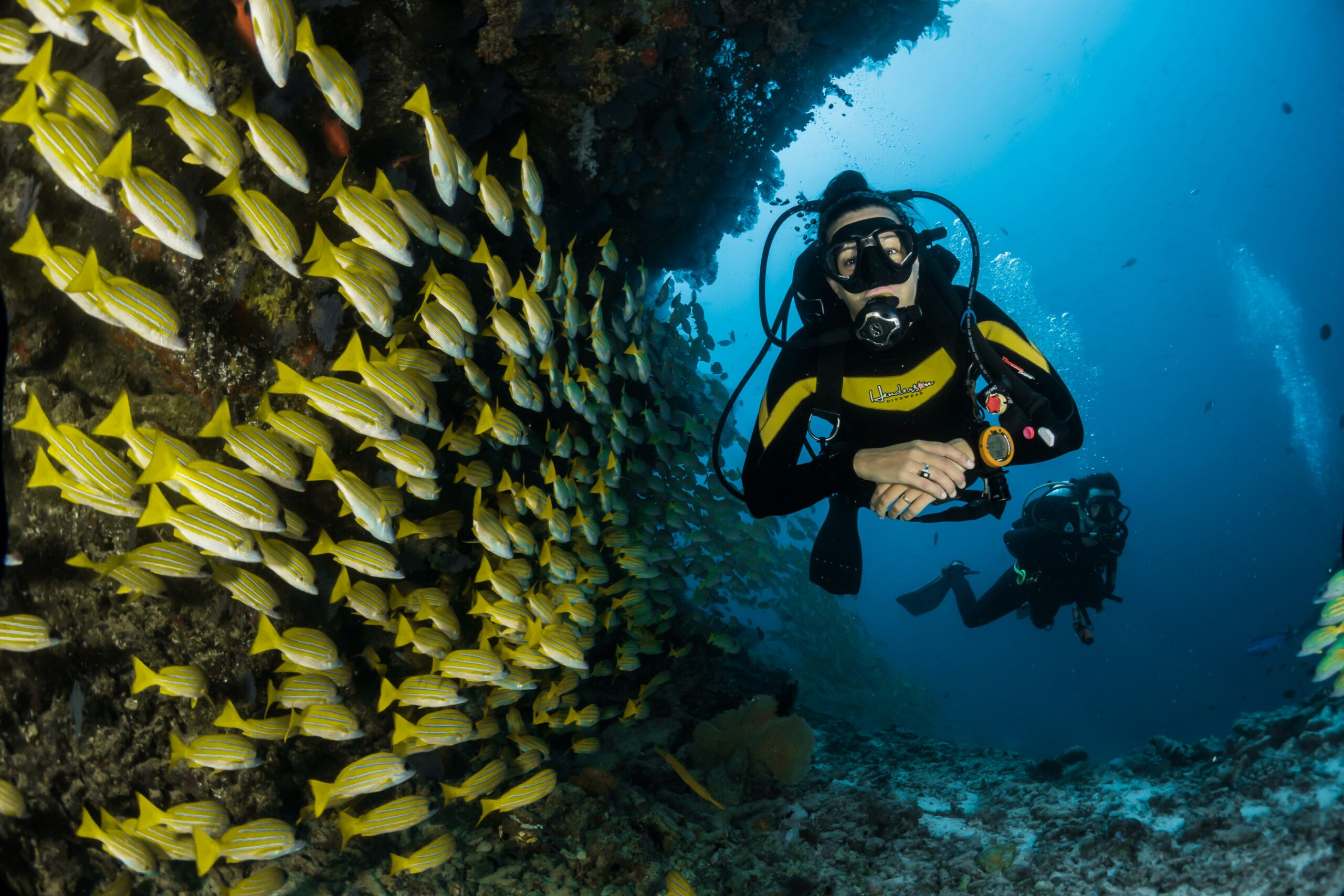
In a world increasingly concerned with health and wellness, intriguing questions often surface, challenging our preconceived notions about active lifestyles. One such query, recently gaining traction within online communities, provocatively asks: does scuba diving, an activity synonymous with adventure, breathtaking beauty, and physical exertion, somehow contribute to obesity? For many, this notion feels profoundly counter-intuitive, almost heretical, considering the visible athleticism of divers gracefully navigating vibrant coral gardens and exploring sunken relics. Yet, a deeper examination reveals fascinating physiological dynamics and a compelling narrative of aquatic engagement that profoundly impacts our bodies, often in incredibly positive ways.
Dispelling this perplexing myth is crucial, because, far from being a sedentary pursuit, diving is an active, full-body workout. The simple act of donning heavy gear, walking to the water’s edge, and then swimming against currents, even gentle ones, demands considerable energy. Below the surface, the body becomes a finely tuned machine, constantly working to maintain buoyancy, regulate temperature, and propel itself through a dense medium. This sustained physical effort, often extended over multiple dives in a day, translates directly into significant caloric expenditure, fundamentally challenging the premise that diving might lead to weight gain. Indeed, embracing the underwater world offers a remarkably effective path toward enhanced physical fitness and mental well-being, effectively making it a powerful ally in the fight against excess weight rather than a contributing factor.
Understanding how diving actively supports a healthy lifestyle.
| Aspect | Description | Relevance to Health & Fitness |
|---|---|---|
| Caloric Expenditure | A typical recreational dive (45-60 min) can burn between 300 to 600 calories, comparable to a brisk walk or light jogging. Factors like current, water temperature, and diver’s effort significantly influence this. | Directly contributes to weight management and fat loss by creating a caloric deficit. |
| Full-Body Workout | Engages major muscle groups including core (for stability), legs (finning), back and shoulders (carrying gear, maneuvering). | Enhances muscle strength, endurance, and overall physical conditioning, leading to increased metabolism. |
| Cardiovascular Health | Sustained swimming and exertion under water elevate heart rate, improving cardiovascular endurance without high impact. | Strengthens the heart and lungs, reducing risks associated with heart disease and improving circulatory health. |
| Thermoregulation | The body expends energy to maintain core temperature in cooler water, further increasing metabolic rate. | An additional physiological mechanism for calorie burning, particularly in temperate or colder dive environments. |
| Mental Well-being | Reduces stress, promotes mindfulness, and improves focus. The serene underwater environment is incredibly calming. | Indirectly supports healthy eating habits and reduces stress-induced weight gain. Improves sleep quality. |
| Mobility & Flexibility | Movements underwater can improve joint flexibility and range of motion, beneficial for all ages. | Supports overall physical agility and reduces the risk of injuries, encouraging a more active lifestyle. |
For further scientific insights into diving physiology, visit Divers Alert Network (DAN).
Considering the evidence, the notion of scuba diving causing obesity quickly dissolves, much like a sugar cube in water. Dr. Anya Sharma, a renowned marine physiologist specializing in human adaptation to aquatic environments, unequivocally states, “Diving is a fantastic low-impact, high-benefit activity. Your body is constantly working – from the moment you lift your tank to the sustained effort of finning. It’s an often-underestimated calorie burner, engaging core muscles and promoting cardiovascular health without the harsh impact associated with land-based exercises.” Moreover, the energy expended for thermoregulation in cooler waters further amplifies this effect. Your body, striving to maintain a stable internal temperature, burns additional calories, transforming every dive into an invigorating metabolic booster.
So, if the activity itself is a fitness ally, where does the misconception originate? Often, the answer lies not in the dive itself, but in the lifestyle choices surrounding it. Post-dive hunger, a common phenomenon due to the physical exertion and sometimes cooler temperatures, can lead to overindulgence in calorie-dense foods if not managed consciously. Similarly, the travel aspect of diving, involving rich resort buffets or less active transit days, might contribute to weight gain if not balanced with mindful eating and continued physical activity. These are behavioral patterns, however, not inherent consequences of submerging oneself in the marine realm. Understanding this distinction is paramount for any diver committed to maintaining a healthy weight.
Embracing the underwater world is, in essence, an invitation to a healthier, more active life. By integrating insights from sports science with responsible dietary choices, divers can maximize the profound health benefits of their passion. Imagine gliding effortlessly through vibrant coral forests, propelled by your own strength, feeling the gentle resistance of the water sculpting your physique. This is not merely recreation; it is an incredibly effective form of exercise, disguised as adventure. The optimistic outlook for divers is clear: continue exploring, continue moving, and continue savoring the incredible physical and mental rewards that only the ocean can provide. Dive on, knowing you’re actively investing in your well-being!
